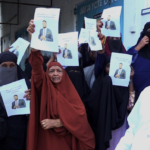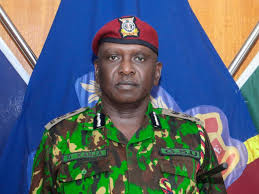On September 21, 2024, President William Ruto arrived in Port-au-Prince, Haiti, marking a significant visit 100 days after he flagged off the Kenyan police contingent for the Multinational Security Support Mission (MSS) in the Caribbean nation.
This trip aims to assess the progress of the mission, commend the Kenyan officers working alongside Haitian counterparts, and engage with the Transitional Presidential Council led by Edgard LeBlanc.
Purpose of the Visit
The State House confirmed that Ruto’s visit is part of efforts to strengthen bilateral relations between Kenya and Haiti, particularly in security and development cooperation.
Local officials noted that Ruto’s tour is significant as he prepares for discussions at the United Nations General Assembly (UNGA) in New York, where he will address the welfare of the MSS, whose mandate is set to expire next month but is expected to be renewed for another year by the UN Security Council.
The Haitian Presidential Transitional Council’s communication team emphasized that Ruto’s discussions will focus on “issues of international interest,” reflecting the importance of this diplomatic engagement.
Progress of the Multinational Security Support Mission
The MSS mission has faced challenges, including logistical issues and budget overruns. Despite these hurdles, Kenyan police officers have made notable strides in improving security.
Recently, they conducted joint patrols with Haitian officers in Delmas, resulting in several arrests of gang members, including leaders from notorious gangs like “Chen Mechan” and “Pierre 6.”
Currently, there are approximately 400 Kenyan police officers deployed in Haiti to assist local law enforcement in combating gang violence that has displaced many residents.
U.S. Involvement and Future Considerations
The mission has garnered attention from the United States, which is exploring a transition to a traditional United Nations peacekeeping operation due to funding challenges and equipment shortages.
The Biden administration has communicated its intentions to U.S. lawmakers regarding this potential shift. The current operation costs around $200 million every six months, raising concerns about sustainability and effectiveness.
Despite some successes, there remains disappointment among Haitians regarding the mission’s impact. Many neighborhoods continue to fall under gang control despite the presence of foreign troops.

















